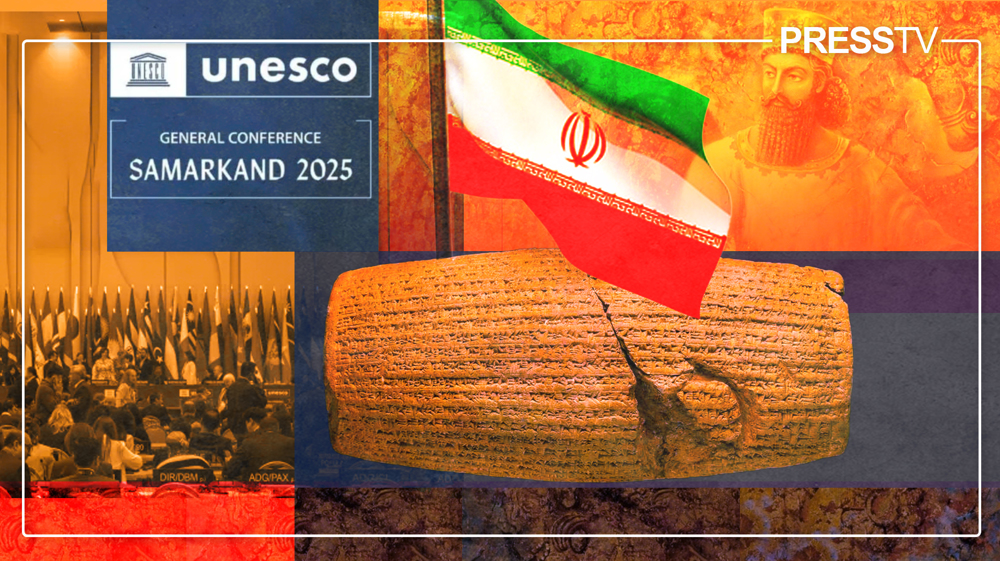Cyrus Cylinder: UNESCO honors Iran’s ancient beacon of justice and tolerance
This recognition by the United Nations’ cultural agency marks a significant milestone for Iran’s cultural diplomacy, reaffirming the nation’s civilizational legacy on the global stage.

In a landmark decision for cultural heritage, the 43rd General Conference of UNESCO, held in Samarkand last week, officially recognized the Cyrus Cylinder as the world’s first written document on human rights.
Adopted by unanimous consensus of all member states, the resolution designates the 2,500-year-old artifact as a foundational text of human civilization, embodying the earliest recorded principles of freedom, justice, tolerance, and respect for cultural diversity.
This recognition by the United Nations’ cultural agency marks a significant milestone for Iran’s cultural diplomacy, reaffirming the nation’s civilizational legacy on the global stage.
President Masoud Pezeshkian hailed the move, calling it a testament to Iran’s enduring presence in humanity’s collective conscience and its key role as a beacon of dialogue, tolerance, and justice.
The formal acknowledgment mandates UNESCO to incorporate the Cyrus Cylinder’s teachings into its educational, cultural, and human rights initiatives, ensuring its message of “humanity, justice, and cultural coexistence” continues to inspire future generations worldwide.
The artifact and its historical context
The Cyrus Cylinder is a small, barrel-shaped object made of baked clay, measuring just over 22 centimeters in length, inscribed with a proclamation in Akkadian cuneiform script.
Discovered in 1879 during a British Museum excavation at the site of the Marduk temple in Babylon (modern-day Iraq), the Cylinder dates back to 539 BCE, following the Persian conquest of Babylon by Cyrus the Great, founder of the Achaemenid Empire.
In keeping with Mesopotamian customs, it was created as a foundation deposit, buried within the city walls to commemorate the new ruler’s restoration projects and secure the gods' favor.
The text, composed from a Babylonian perspective by the priests of Marduk, narrates Cyrus’s victory over the last Babylonian king, Nabonidus, who is portrayed as an impious ruler who disrupted the gods’ cults and imposed forced labor on the populace.
According to the narrative, the supreme god Marduk, angered by Nabonidus’s misdeeds, sought a righteous leader and chose Cyrus, king of Anshan, to restore order and justice.

Write your comment.